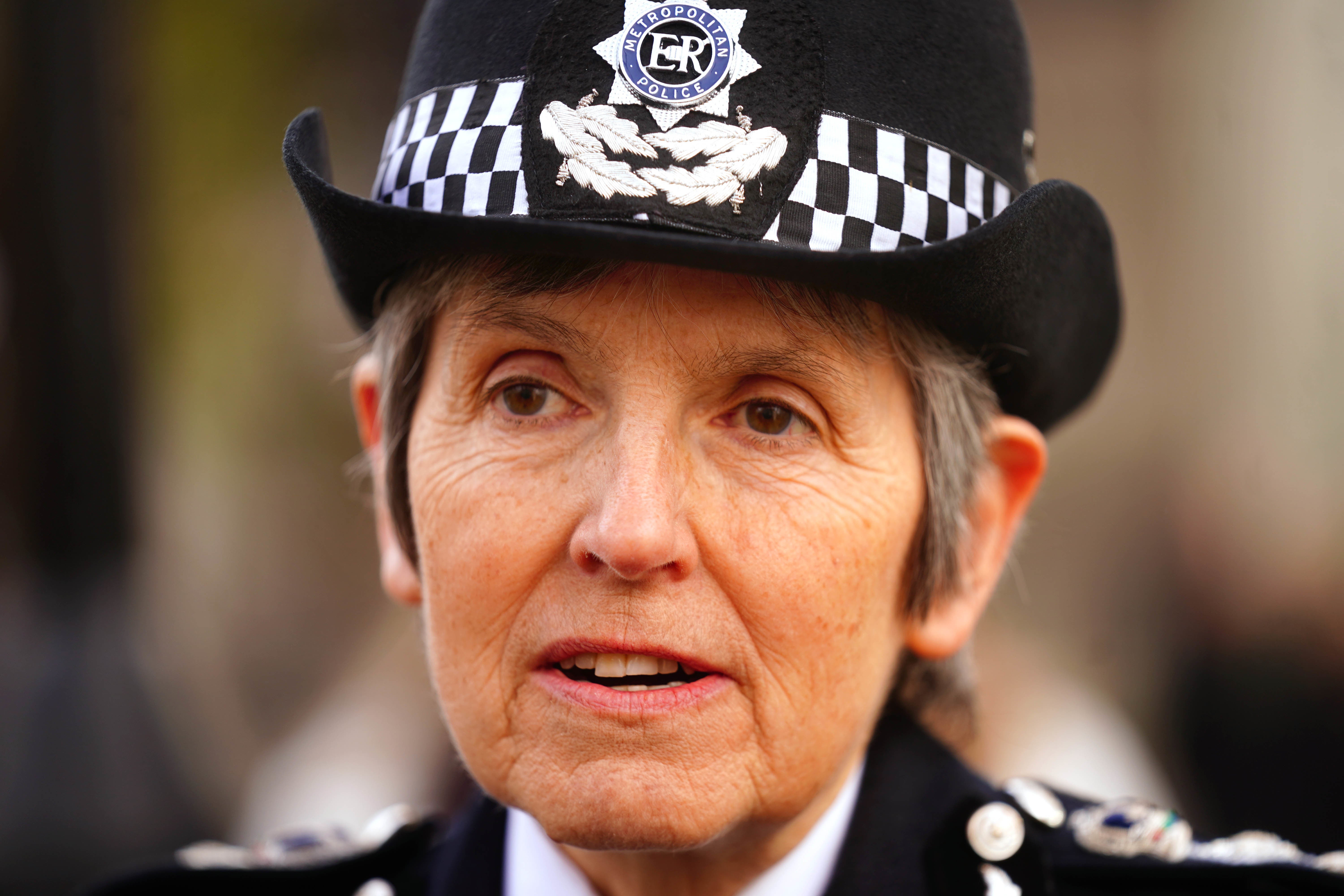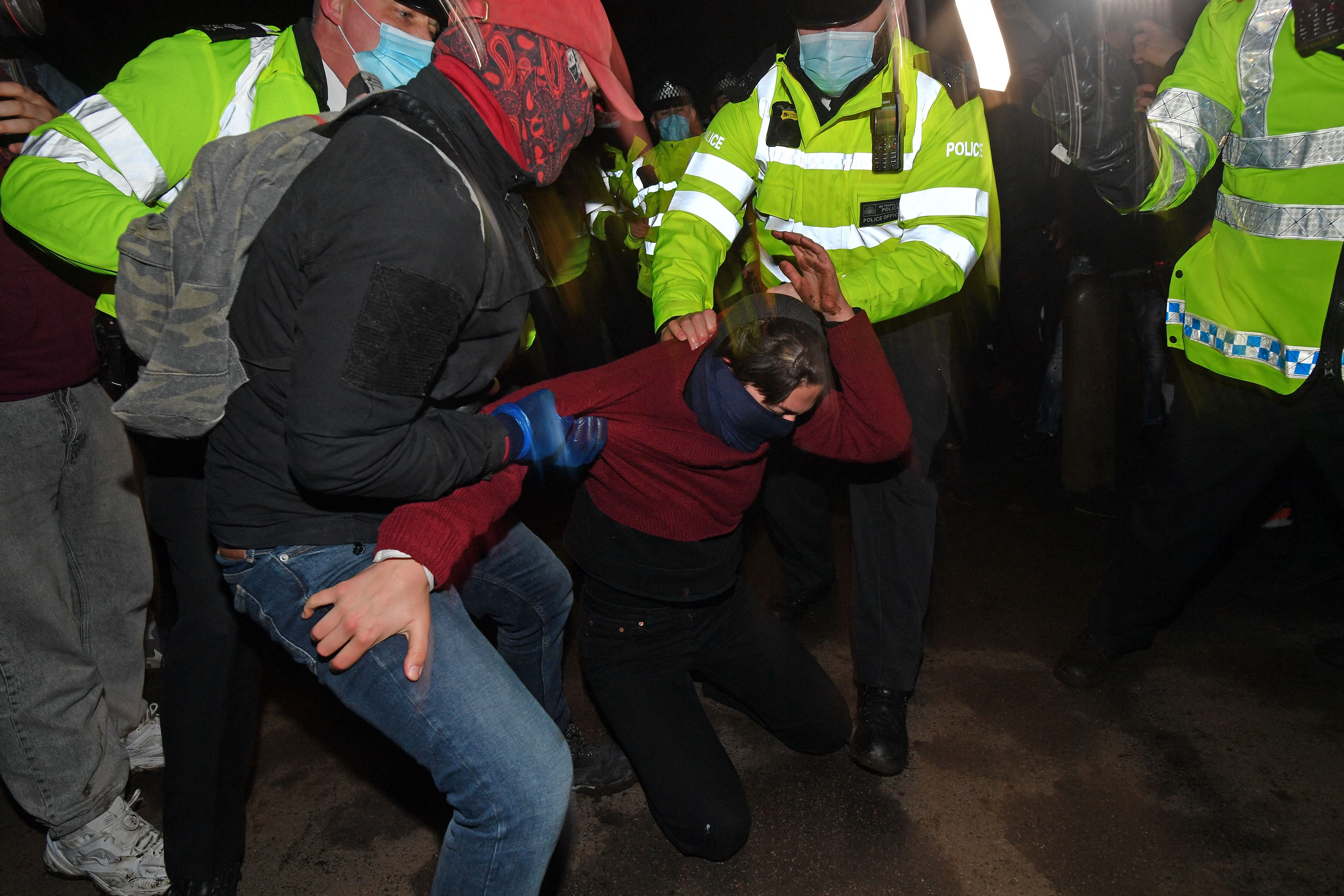Policing has become ‘more politicised’, says outgoing Met boss Cressida Dick
Dame Cressida called for more women to join the police force

Policing has become “more politicised” at a time when trust in the force has dropped, Dame Cressida Dick has said in one of her first public speeches since stepping down as Britain’s top cop last month.
Dame Cressida left her position as Metropolitan Police Commissioner in February when London mayor Sadiq Khan made it clear he did not have any confidence in her plans to reform the capital’s police service.
Speaking at a conference in Dublin to mark International Women’s Day, Dame Cressida reflected on the social changes that had happened in the force since she first began her career nearly 40 years ago.
She told the International Association of Women in Policing event: “Like many other services, we have seen a drop in confidence in our service and we have seen policing becoming more politicised.
“Of course, quite properly given those events and, in particular, the murder of Sarah [Everard, who was murdered by a serving Met officer last March], profound questions have been asked and we have asked ourselves about how inclusive are we, really?
“What more do we need to be truly anti-racist, anti-sexist, anti-homophobic – to be truly professional?
“What else should we be doing to reduce the scourge of violence against women and girls, which is truly endemic in British society and, I think, globally.”
Dame Cressida said she has “brought in a highly-respected independent reviewer to examine our culture in every aspect”.
She explained that the “reviewer” will work together with a small team over the course of nine months and look at “absolutely every way in which we behave and treat each other” before she makes recommendations for change.
Dame Cressida said that the last two years have been “really challenging for everybody,” adding that this included those involved in policing.
She added: “The pandemic, social changes, political changes, economic changes, the dreadful murder of George Floyd and the subsequent global movements and latterly the massive upsurge in interest, quite properly, in the awful extent of violence against women and girls as a result of the appalling murder in London of Sarah Everard by one of my – our – serving police officers, and, of course, other high profile cases such as, recently, Ashling Murphy.”
Ms Everard, 33, was abducted in south London just over one year ago by policeman Wayne Couzens – under the guise of being arrested for breaching Covid guidelines – before he raped and murdered her in Kent.

Miss Murphy meanwhile, was a 23-year-old teacher who was attacked and killed while running along a canal near Tullamore in Ireland in January.
Dame Cressida, who was the first woman to head up the Met, urged people to support women and help overcome bias.
Speaking about her experiences as a woman in the workplace, she said she worked in a fish and chip shop and at an accountancy firm before joining the force and they were “more sexist, more racist, and we broadly represented society’s attitudes to women and work”.
She added: “I am not naïve, for some colleagues it was downright miserable and unpleasant.
“But for many others, including me, I so am lucky I fell in love with policing. I found my mission, my passion, my niche, and we will always, are always and should be always full of hope.
“Back then, buoyed up by the feminist movement and new anti-discrimination legislation, we knew that the world would change.
“It may not have changed as fast as we would have liked but, my goodness, it has.”
Dame Cressida’s time in charge of the Met was marred by a number of controversies. These include the public fury at the way the police force handled a vigil held in Ms Everard’s memory during coronavirus restrictions.
Concern has been also been raised after racist, misogynist and homophobic messages that had been exchanged between officers based at London’s Charing Cross police station were published by a watchdog.
At the conference, Dame Cressida highlighted how only about 30 per cent of officers in the Met are women, while 37 per cent of women form part of the overall force.
She said that she hopes more women will join the Met next year and said that “there is much to do” in terms of recruitment, hoping that something close to 1,800 or 2,000 women will join the Met next year.
Join our commenting forum
Join thought-provoking conversations, follow other Independent readers and see their replies
Comments
Bookmark popover
Removed from bookmarks